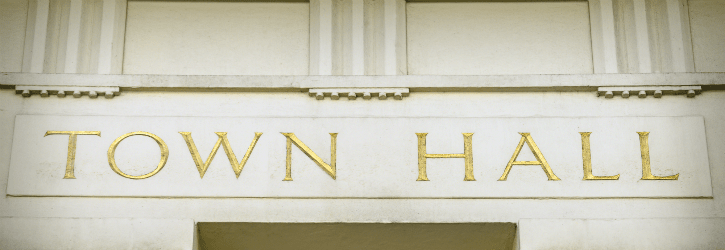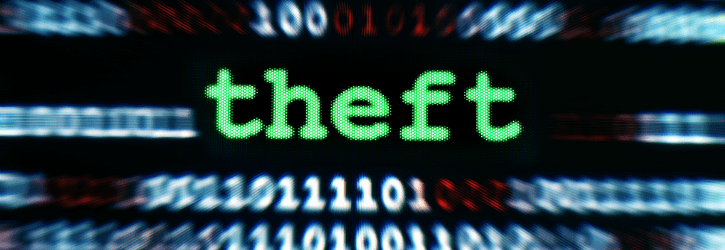
Welcome To The Data Leak Lawyers Blog
We focus on the latest news surrounding data breaches, leaks and hacks plus daily internet security articles.

We focus on the latest news surrounding data breaches, leaks and hacks plus daily internet security articles.

With data breaches gaining traction in recent times, many people could be becoming wary of disclosing their data to businesses and organisations, and some may be concerned about what that they can do in the event of a data breach. Your Lawyers, as leading specialists in data breach claims and consumer group actions, are passionate about widening access to justice. This is why want to give you a brief data breach compensation pay-out guide to demonstrate what can be achieved by asserting your legal rights.
In accordance with UK law, all third parties that process, handle or store information relating to their customers, employees or other consumers are obliged to protect it in accordance with the GDPR. This involves ensuring that appropriate data protection procedure is followed by staff, and that there are sufficient cybersecurity defences in place to block potential hackers.
As a result, data controllers can fall foul of the law if they expose or compromise information through their own negligence. If you have been the victim of breach of data protection law, you could be eligible to claim compensation for any harm caused. Read on or contact us to find out more about your potential data breach claim.

The Cabinet Office has been issued with a penalty in the sum of £500,000 for the 2020 New Year Honours data breach, an incident that we have resolved legal action for.
The fine has been issued by the UK’s data watchdog, the Information Commissioner’s Office (ICO), which is intended to act as a punishment for what has happened. Such penalties can also act as a deterrent against future events.
We are pleased to see that regulatory action has now concluded. The fine is a separate matter to private legal action that victims of the data leak can be entitled to pursue. We have already resolved legal action that we have taken, having been instructed to act in the wake of the event, and this fine further cements that victims could be entitled to pursue a claim for compensation.

The civil service spreads across a number of different departments, and handles a large amount of sensitive information. With the responsibility of processing, handling and storing such private data, we would expect the civil service to ensure that such data remains secure. Instead, there have been a number of civil service data breaches in recent years which indicates that these government departments may need to improve their data protection strategies.
In accordance with UK data protection law, all organisations in possession of information must protect it from exposure with appropriate procedures and cybersecurity measures. If they fail to do so, they could be deemed to have broken the law, and may face sanctions or penalties.
But also, if you have been affected by a data breach, you could be eligible to claim compensation for any harm caused. Even the civil service is not exempt from data protection law, so come to us for free, no-obligation advice if you think you may have a compensation claim to make.

It may be the most wonderful time of the year for all the right reasons, but the festive season, and the weeks leading up to it, can be a hotbed for privacy events that could entitle you to pursue a retail data breach claim.
Unfortunately, hackers and scammers do exploit this time of the year when they know that retailers will often be very busy, and when they know that online shopping can reach its peaks. It is the ideal time for criminals to exploit people, and a successful cyberattack could see thousands – even millions – of people affected. As such, we all need to be careful, and we all need to watch out for hackers and scammers.

Educational institutions have been targeted by cyberattacks with increasing frequency in the past few months, so the risk to the private information that is held by schools appears to be pronounced. In this climate of hacks and ransomware, it is important that high schools are doing everything they possibly can to protect the sensitive information of students, staff and parents, or there could be an increasing number of high school data breaches.
All schools hold a wealth of information about their pupils, from home addresses to medical information. It is important that teachers can access these details when necessary for the purposes of safeguarding and student welfare, but this also means that schools have an obligation to manage and process this information securely.
If you or your child has been affected by a high school data breach, you may be eligible to make a data breach claim for any harm caused. Where schools are responsible for the exposure of private information, they must be held accountable. Claiming compensation can be a route to ensuring that justice is achieved.

We have been approached for legal help following the recently identified Trafford Housing Trust data breach, and we have agreed to take action forward on a No Win, No Fee basis.
An outsourced contractor that the Trust uses has reportedly been hit by a cyberattack, and the result is that personal information has now been exposed.
Victims of a cyberattack can be entitled to claim data breach compensation to recover damages for any distress caused by the loss of control of their personal information. If any losses and expenses are incurred, these could also be considered.

Remote working has been a key security focus for some companies for a number of years, but the coronavirus pandemic has led to many more businesses adopting homeworking as a long-term practice. For some, remote working has longevity beyond social distancing restrictions. However, it can come with cybersecurity concerns, such that businesses must ensure they are effectively managing the risks of remote workers exposing data.
As well as the external cybersecurity threats to company servers, there is also a risk that undisciplined employees may make mistakes when they are no longer working in a controlled environment. Even the simplest of errors or oversights could allow sensitive information to become vulnerable.
Unfortunately, when the transition was made to remote working, some companies failed to make the cybersecurity adjustments required. Going forward, it is important that every company adapts their data protection strategies to the demands of remote working, or they may risk information exposure.

In September 2020, the National Cyber Security Centre issued an alert, warning of increasing ransomware affecting schools, as well as colleges and universities. Earlier in 2021, the alert was updated to warn of yet another spike. The numerous headlines, especially over the summer, suggested that schools have been hit particularly hard, with successful attacks that can harm many people emerging on a regular basis.
Ransomware remains one of the most prominent cybersecurity threats faced by businesses and organisations in today’s digital age. Via ransomware, attackers could gain the power to take control of entire systems or networks. They could bring operations to a standstill, and could potentially steal swathes of private information. Where schools are concerned, ransomware can be particularly dangerous, as these organisations often hold a great deal of sensitive information relating to vulnerable children and young people.
As the ransomware threat shows no sign of abetting, it is essential that schools take action to improve their prevention and response methods, or they could be liable for the exposure of extensive personal data. Where a school has failed to protect the private details of you or your child, you could be eligible to pursue a data breach compensation claim now.

The recently announced GoDaddy cyber hack is another example of a big company being hit by a cyberattack that has resulted in the information for over a million people being exposed.
Cybercriminals are increasingly targeting large platforms like GoDaddy where they can hope to steal swathes of personal information that they could then misuse to commit fraud and theft. Even a little information can go a long way, and the risks for the victims could be significant.
Your Lawyers, as leading Data Leak Lawyers, have been fighting for the rights of privacy breach victims for years, representing thousands of clients in England and Wales. We know how badly people can suffer due to these types of attacks, and we are here to help.

Healthcare has long been regarded as particularly vulnerable to external cyber threats. The potential vulnerability of healthcare organisations can be twofold: not only can their databases offer a wealth of highly sensitive data for cybercriminals to misuse, they have also been seen as weak in terms of their cybersecurity defences. Healthcare network breaches could occur when attackers exploit vulnerabilities in systems, finding a route via which to access private medical information.
All healthcare organisations must, therefore, be on their guard when it comes to potential cybersecurity threats, but this is not always the case. When cybercriminals do break through, the data theft can have catastrophic consequences for the affected patients or employees, potentially causing them significant distress and even financial loss.
If you have been affected by a medical data breach, you will likely feel let down by your healthcare provider’s failure to prevent the attack. Where the organisation failed to do enough to protect your information, you could be entitled to claim compensation. Contact us for further information and to find out whether you could be eligible for a data breach claim.
EasyJet admits data of nine million hacked
British Airways data breach: How to claim up to £6,000 compensation
Are you owed £5,000 for the Virgin Media data breach?
Virgin Media faces £4.5 BILLION in compensation payouts
BA customers given final deadline to claim compensation for data breach
Shoppers slam Morrisons after loyalty points stolen
Half a million customers can sue BA over huge data breach
Lawyers accuse BA of 'swerving responsibility' for data breach
The biggest data breaches of 2020
Fill out our quick call back form below and we'll contact you when you're ready to talk to us.